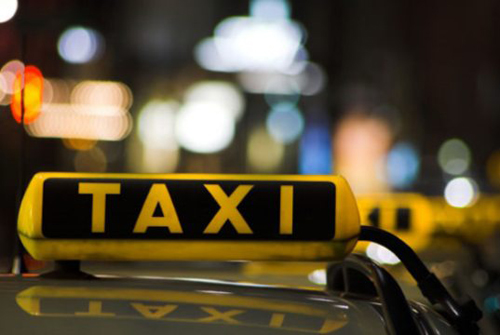Column: Paying my dues — a tale of three unions
With the state Legislature upping the minimum wage from $7.25 to $9 an hour, and fast food workers agitating for a union, it brought to mind my own experience scuffling at low-paying jobs — and the three union cards I carried. I’ve seen unions from three distinct angles: the weird, the great and the awful.
But first, some thoughts on why some people think unionizing a KFC worker is strange or funny. These jobs are widely disparaged in American culture; someone “flipping burgers” is a figure of fun. (It’s the same as the widely used “trailer trash” description of people. Can there finally be a moratorium on that? Do people using that term ever think of the kid growing up in a trailer park, hearing herself and her family referred to as trash by someone on TV?)
And unions? They’re considered an anachronism at best, “job killers” at worst — that is, except to those union members who have a job and make living wages. The left and the right both complain about how the middle class has been squeezed and shrunk over the last several decades, and both political wings have their reasons for this.
One argument for the stagnation of real wages — productivity grew 80 percent over the last decade while hourly wages grew only 10 percent, according to the Economic Policy Institute — is that with the death of unionized labor, real money in the pocket has shrunk.
The union movement took off during the Great Depression, beginning in 1929, when the economy collapsed. Organization and collective bargaining thrived for several generations, contributing to one of history’s triumphs: the rapid and extensive expansion of the American middle class. In the 1950s, 50 percent of American workers held union cards. Today, according to the U.S. Department of Labor, 11.3 percent of workers are unionized.
So, my three unions: As a high school kid I landed a full-time night job at a municipal golf course. My duties: Starting at 5 p.m., running an ancient, one-gear truck, following the final foursome around the 18 holes setting up sprinklers; moving the hoses after a couple of hours; driving around later and shutting them off and coiling them in the back of the truck.
I then went into watchman mode, although what I was watching for was never clearly spelled out. I did my duty by sprawling on a derelict couch in a shack in the woods off the 15th hole, listening to the radio and reading. By 1 o’clock I was done, racing to catch the last bus home.
I was paid peanuts, but it kept me out of the pool hall. The job improved immediately one midnight when a guy in a suit walked in. This was startling, since for a year I’d seen no one after that final foursome every evening. Was he who I should have been watching for? Before I could say anything, he introduced himself and called me “brother.” I was now a member of the International Brotherhood of Teamsters, Chauffeurs and Warehousemen of America. I was told a few dollars in dues would be taken out of my paycheck next week, handed a pamphlet and a card and got a handshake. Before I could ask a single question, my new union brother vanished.
The few dollars were removed from my check but more were added. I got an immediate 20 percent raise and wouldn’t laugh at Jimmy Hoffa jokes for years.
Did I deserve the raise? Asking the question defines you.
A few years later, at loose ends, I went to a state labor department office in Manhattan one morning. By that afternoon I was running an elevator at a five-story school on Central Park West. Soon I was a member of Local 32B of the New York Building Services Union.
The pay was all right, but the benefits, medical and dental, were better. Summers, when school was out, the doormen and elevator operators became maintenance men, and I painted classrooms and hallways, did pointing on the roof facade and was a plumber’s assistant. Walter Brown, our shop steward, kept telling me to pay attention, plumbers made way more than elevator jockeys. Did I listen to Walter? If I had, my address today would be Easy Street, Fat City.
My final union was the New York City taxi drivers union, where I paid dues for four years. The union and the industry as a whole have changed radically since those days. Back then the union was led by goons who were in bed with the big fleet owners. The general union meetings were chair-throwing parties — literally. If you went down to the hall on Park Avenue South to get some clarification on dues or rules, some union brothers named Sonny and Junior would be happy to clarify you right out into the parking lot.
But whenever I hear of people trying to organize, I remember the cabbies I shared long afternoons with at the fleet garages shaping up for work, and the Teamsters I came to know and especially Walter Brown, who truly believed in a union of bread and roses.
Ambrose Clancy is the editor of The Shelter Island Reporter. He can be reached at [email protected].









